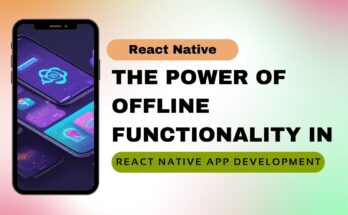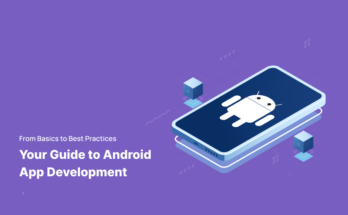Full-cycle product development is the process of taking a product from inception to commercialization. It’s a methodical approach that involves a number of steps, including planning, design, development, testing, and deployment.
Are you considering investing in Full Cycle Product Development for your business or project? Before making the decision, it’s important to understand exactly what full-cycle software development is and whether or not it’s the right fit for your needs. In this blog post, we’ll explore the concept of full-cycle product development and discuss when you may need to use it. With the right information in hand, you’ll be better equipped to decide if full-cycle software development is the right move for your project.
What is Full-Cycle Product Development
Full-Cycle Product Development is a comprehensive process of bringing a product from ideation to market launch. It involves multiple stages that are required to bring a product to fruition, such as market research, product design, engineering, prototyping, manufacturing, testing, marketing, and sales. Essentially, Full-Cycle Product Development means taking care of everything from beginning to end.
One of the essential aspects of Full-Cycle Product Development is that it is an end-to-end process that ensures that a product is fully developed, from the initial stages of brainstorming and market research to its launch in the market. The aim of this process is to deliver high-quality, cost-effective, and market-ready products that can meet the expectations of customers and compete with other similar products in the market.
Pros and Cons of Full-Cycle Product Development
Full-cycle product development involves taking a product from the concept phase all the way through to launch and post-launch support. This can be a time-consuming and costly process, so it’s important to weigh the pros and cons before deciding whether or not to pursue full-cycle development.
– More control:
With full-cycle development, you have more control over every aspect of the product. This means that you can ensure that it meets your vision and meets your customers’ needs.
– Fewer communication gaps:
With partial-cycle development, there can be gaps in communication between teams that are responsible for different phases of development. With full-cycle development, you’re working with one team that handles everything, so communication gaps are less likely to happen.
– Better integration:
Since one team is responsible for all phases of development, integration between different components of the product is smoother. This leads to a better end product that is more cohesive and reliable.
– Faster time to market:
Since everything is done by one team, the process is generally more efficient and faster, which can lead to a shorter time to market.
– Higher costs:
Full-cycle development can be more expensive since it requires more resources to handle all phases of development.
– Longer timelines:
Since one team is responsible for everything, it can take longer to complete all phases of development. This may not be a concern if time isn’t a critical factor.
– More specialized skills required:
Full-cycle development requires a team with diverse skills and experience across all phases of development. This can be a challenge for smaller companies that don’t have the necessary resources in-house.
In summary, full-cycle product development can be a good choice for companies that want more control, better integration, and faster time to market. However, it comes with higher costs, longer timelines, and requires specialized skills. When deciding whether or not to pursue full-cycle development, it’s important to weigh the pros and cons against your specific business needs and goals.
Benefits of Full-Cycle Product Development
If you’re looking for a reliable way to create a high-quality product that meets all your requirements, then full-cycle product development could be the way to go. Here are some of the benefits that come with this approach:
1. Comprehensive planning:
Full-cycle development involves a detailed analysis of your business requirements, market trends, and user needs. This process helps to identify the most appropriate technologies, development methods, and features for your product.
2. Time and cost savings:
Full-cycle development eliminates the need for additional vendors and reduces the risk of delays due to miscommunication. This approach ensures that all stages of the development process are seamlessly integrated, saving you time and money.
3. Quality assurance:
Full-cycle development includes thorough testing and debugging of your product, ensuring that it’s ready for deployment. This approach guarantees that your product is reliable, user-friendly, and bug-free.
4. Support and maintenance:
With full-cycle development, you can expect ongoing support and maintenance from your development team, ensuring that your product remains up-to-date and relevant.
5. Seamless scaling:
Full-cycle development enables you to scale your product with ease, allowing you to add new features and functionality as your business grows.
Overall, full-cycle product development offers a comprehensive and streamlined approach to product development that delivers high-quality results, reduces risk, and maximizes ROI.
Why to choose JS Panther for full-cycle development company
When it comes to full-cycle product development, choosing the right software development company can make all the difference. That’s why we recommend JS Panther as a top choice for companies in need of comprehensive development services.
JS Panther has a team of highly skilled developers who have a deep understanding of the product development lifecycle. They’re committed to delivering quality work that meets the unique needs of each client, from ideation to product launch and beyond.
One of the key advantages of choosing JS Panther for your full-cycle development needs is their ability to work with a wide range of technologies. Whether you need a web app, a mobile app, or a custom solution built from the ground up, JS Panther has the expertise to make it happen.
Also Read: The Top 10 Employee Tracking Software Options
Author Bio
Erma Winter is a passionate React Native app developer with extensive experience in the technology industry. With a deep understanding of the ins and outs of product development, they are able to provide valuable insights and tips on how businesses can improve their processes. In their free time, She enjoys exploring new tech gadgets and staying up to date with the latest industry trends.




